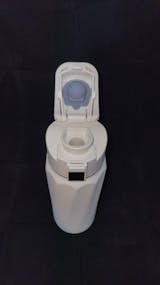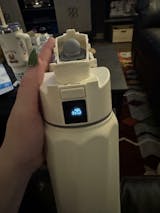
What Happens to Your Body Hour by Hour Without Water?
Water is the unsung hero of human health. It makes up about 60% of your body and is essential for everything—from regulating temperature to transporting nutrients and flushing out waste. But what actually happens when you skip water for an extended period? You might be surprised at how quickly dehydration can affect your body, even in just a few hours. Let’s break it down, hour by hour.
The first few hours(0-4 hours without water)

0–1 hour:
If you’re sitting at your desk in an air-conditioned room, you might not feel any different yet. Your kidneys continue to filter fluids, and your hydration levels remain stable. However, if you’re exercising or outside in the heat, you begin losing fluids through sweat almost immediately.
1–2 hours:
A dry mouth or a subtle thirst may appear. This is your brain’s first nudge that you need to top up your fluids. Your body is already working to conserve water by concentrating your urine slightly.
2–4 hours:
You may notice a small dip in concentration or energy. Urine becomes slightly darker, and bathroom trips may become less frequent. Your body is conserving water while quietly signaling you to drink.
Midpoint dehydration(4-8 hours without water)
4–6 hours:
Thirst becomes stronger, and you might develop a dull headache. Your mouth, eyes, and skin could start to feel dry. Urine turns a deeper yellow, and the amount decreases.
6–8 hours:
Your blood volume may begin to drop slightly, causing your heart rate to rise as it works harder to maintain circulation. Fatigue sets in, focus declines, and mood changes—like irritability—are common.
Serious dehydration sets in(8-12 hours without water)
8–10 hours:
If you’re active or in a hot environment, your risk of heat exhaustion increases. You may experience muscle cramps as electrolytes become imbalanced. Your skin can lose elasticity, and you may feel light-headed when standing up.
10–12 hours:
Cognitive functions decline further. Nausea, dizziness, and confusion can appear. Your kidneys are under stress, and your body struggles to maintain normal blood pressure.
Danger zone(12-24 hours without water)

12–16 hours:
Severe dehydration symptoms intensify. You may feel extremely weak, faint, or unable to stand. Some people develop a fever, especially children or older adults.
16–24 hours:
Your kidneys may start to shut down, and urination may stop entirely. Confusion and extreme fatigue make basic tasks difficult. If body temperature rises, the risk of heat stroke, seizures, or organ failure increases dramatically.
What happens after 24+ hours without water?
Beyond the 24-hour mark, your body shifts into full survival mode. Sweat and urine output drop drastically to conserve fluids. This means toxins start building up in the blood. Organ damage can begin within days, and without medical intervention, coma or death can occur within 72 hours—sometimes sooner in hot conditions.
Who is at higher risk?
Certain people can feel the effects of dehydration faster:
- Children and elderly adults – smaller water reserves and reduced thirst perception.
- People with chronic illnesses, such as disease or diabetes.
- Outdoor workers and athletes in hot environments.
- Those experiencing vomiting, diarrhea, or fever—rapid fluid loss accelerates dehydration.
How much water should you drink to avoid this?

Daily hydration needs vary, but the U.S. National Academies of Sciences suggests:
- Men: ~3.7 liters (125 oz) per day.
- Women: ~2.7 liters (91 oz) per day.
This includes all fluids—water, beverages, and foods rich in water.
Quick tip: Check your urine color—it should be light yellow. Dark yellow indicates that you need to increase your fluid intake.
FAQs
Can I go a day without water if I`m not sweating?
Even without sweating, your body loses water through breathing, urination, and minor perspiration. Skipping water for 24 hours can still strain your kidneys, reduce mental clarity, and increase fatigue.
What are the early signs of dehydration I might miss?
Beyond thirst, early dehydration can cause headaches, mild dizziness, darker urine, irritability, and reduced focus.
Conclusion
Your body starts feeling the effects of dehydration far sooner than most people think—sometimes in just a few hours. By staying hydrated and keeping water nearby, you protect your brain, heart, kidneys, and overall health. Don’t wait for the warning signs—drink up before your body starts asking.
















